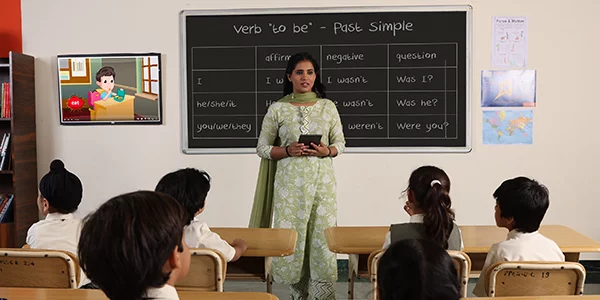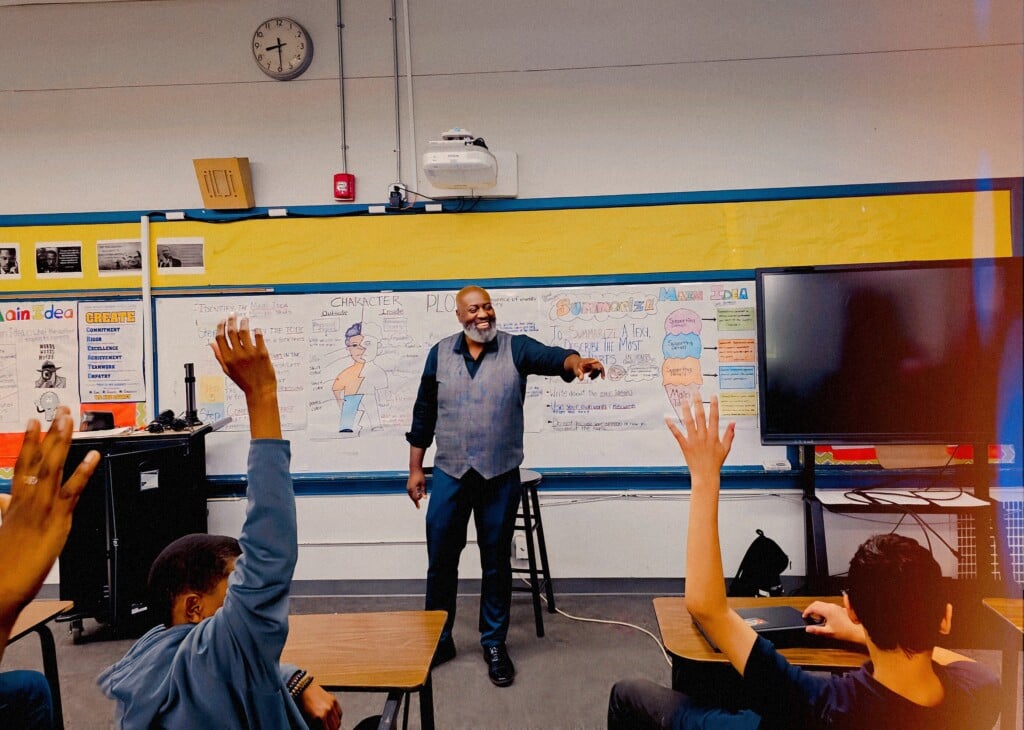The Best Primary Science Tuition Singapore for Effective Learning Methods
The Best Primary Science Tuition Singapore for Effective Learning Methods
Blog Article
Checking Out the Different Teaching Strategies in Key Scientific Research Education And Learning Today
Inquiry-based knowing, hands-on experiments, and the integration of modern technology are redefining just how teachers involve young minds. Additionally, collective techniques and differentiated instruction are being employed to provide to the diverse demands of trainees, improving both interaction and understanding.
Inquiry-Based Learning
Inquiry-Based Knowing (IBL) is an instructional strategy that urges trainees to check out clinical concepts with doubting, examination, and hands-on experimentation. This method highlights the duty of students as energetic individuals in their understanding, promoting vital reasoning and analytical skills. By engaging with real-world concerns, students end up being motivated and interested, which boosts their understanding of scientific concepts.
In IBL, instructors function as facilitators, guiding trainees as they browse their inquiries as opposed to delivering details straight. This student-centered technique allows for distinction, suiting numerous finding out designs and paces. Students establish skills in developing hypotheses, designing experiments, and analyzing information, which are vital for clinical literacy.
Furthermore, IBL promotes cooperation among pupils, urging them to share searchings for and concepts. This collective query promotes social skills and a sense of community within the classroom. The process of query motivates durability, as pupils learn to welcome failing as a tipping stone towards understanding.
Hands-On Experiments
Hands-on experiments are a crucial component of reliable scientific research education and learning, matching the principles of inquiry-based understanding. These experiments permit pupils to involve directly with clinical principles, fostering a deeper understanding through experiential knowing. By controling materials and observing results, young learners can realize abstract concepts in concrete ways.
Such activities advertise essential thinking and analytic skills, as trainees assume end results, conduct experiments, and evaluate outcomes. This process encourages them to ask inquiries, fine-tune their understanding, and establish a scientific way of thinking. Furthermore, hands-on experiments can be tailored to varied knowing styles, guaranteeing that all trainees have the opportunity to engage meaningfully with the content.
Furthermore, hands-on experiments typically motivate collaboration among peers, advertising synergy and communication skills. Operating in teams enables trainees to share concepts, review searchings for, and gain from each other, which enhances their general educational experience.
Incorporating hands-on experiments right into the primary scientific research educational program not only enriches the discovering setting but also cultivates a long-lasting interest in scientific research. By proactively taking part in their education, students are extra most likely to develop an interest for scientific questions that extends past the classroom.

Innovation Combination
Incorporating modern technology right into key scientific research education has actually come to be significantly vital in promoting trainee interaction and boosting learning results. The usage of digital tools, such as interactive simulations, online labs, and instructional software program, gives pupils with chances to explore scientific principles in ingenious means. These sources facilitate a deeper understanding of complicated subjects by permitting students to visualize and control variables that would certainly be not practical in a typical classroom setting.
In addition, technology combination encourages individualized finding out experiences. Students can proceed at their very own speed, revisiting difficult concepts with multimedia sources, which cater to various discovering designs. This versatility not only supports specific development but additionally grows a sense of autonomy in students.
Additionally, modern technology functions as a bridge to real-world science, linking pupils with current research and expert payments. Access to on the internet databases and scientific journals widens trainees' point of views on clinical questions and cultivates important thinking skills.
Collaborative Discovering
Joint understanding plays an important duty in main science education and learning by promoting synergy and communication abilities among pupils. This strategy encourages students to collaborate, share understanding, and engage in analytic, which improves their understanding of scientific ideas. By taking part in group tasks, students learn to express their ideas, listen to diverse point of views, and bargain services, every one of which are essential abilities in visit our website both real-world and scholastic contexts.

Research study shows that collaborative learning can bring about boosted motivation and interaction in scientific research subjects, as pupils find satisfaction in shared experiences (primary science tuition Singapore). Additionally, this technique prepares pupils for future collective ventures, furnishing them with the abilities necessary for effective teamwork in college and specialist environments. Eventually, accepting collaborative discovering in key scientific research education can substantially enhance the knowing experience and promote a deeper understanding of clinical query
Distinguished Instruction

Differentiated direction can show up in numerous methods, such as differing the web content, processes, or items of discovering. As an example, instructors might utilize tiered tasks that supply differing degrees of complexity, allowing trainees to operate at their respective readiness degrees. In addition, versatile organizing methods can facilitate collaboration amongst students with different capabilities, promoting peer learning.
Evaluation plays a crucial role in this technique, as it educates direction and helps educators comprehend each trainee's one-of-a-kind needs. Developmental evaluations, such as tests and monitorings, can assist educators in adjusting their techniques to boost browse around these guys learning outcomes. primary science tuition Singapore. Ultimately, by carrying out set apart direction in key scientific research education, educators can cultivate a much more fair and reliable understanding atmosphere, empowering all pupils to reach their full possibility in comprehending clinical sensations
Final Thought
In summary, the diverse teaching approaches in main scientific research education and learning, including inquiry-based understanding, hands-on experiments, innovation integration, collective discovering, and differentiated instruction, collectively add to a more reliable image source learning atmosphere. These approaches advertise essential reasoning, problem-solving abilities, and a much deeper understanding of scientific concepts. By applying these methods, educators can develop helpful and interesting classrooms that deal with the varied needs of students, eventually promoting a lifelong interest in science and enhancing scholastic accomplishment.
Inquiry-Based Understanding (IBL) is a pedagogical technique that urges students to discover clinical principles through questioning, examination, and hands-on trial and error.Joint learning plays an essential function in key scientific research education and learning by promoting teamwork and interaction skills among pupils.Research study suggests that joint learning can lead to boosted motivation and involvement in science topics, as pupils find pleasure in common experiences.In promoting an inclusive knowing environment, distinguished instruction arises as a key method to accommodate the diverse needs and abilities of pupils in main science education. Eventually, by carrying out set apart instruction in key scientific research education and learning, teachers can cultivate a more efficient and equitable knowing environment, equipping all students to reach their full capacity in recognizing clinical sensations.
Report this page